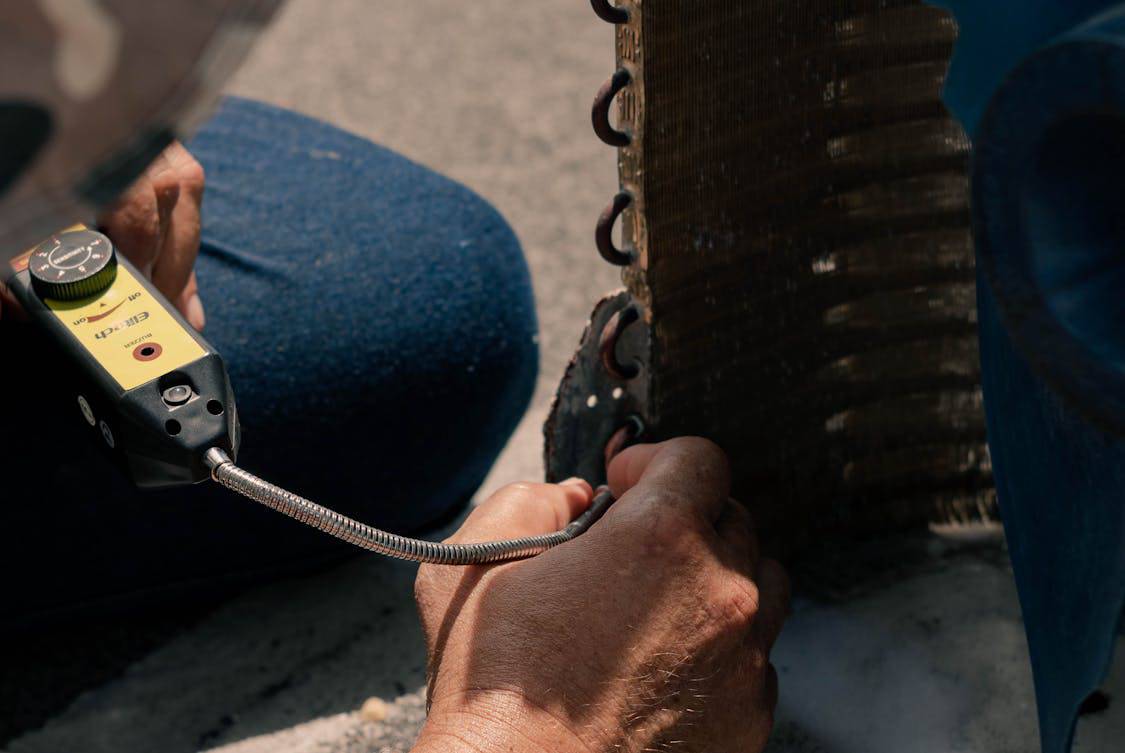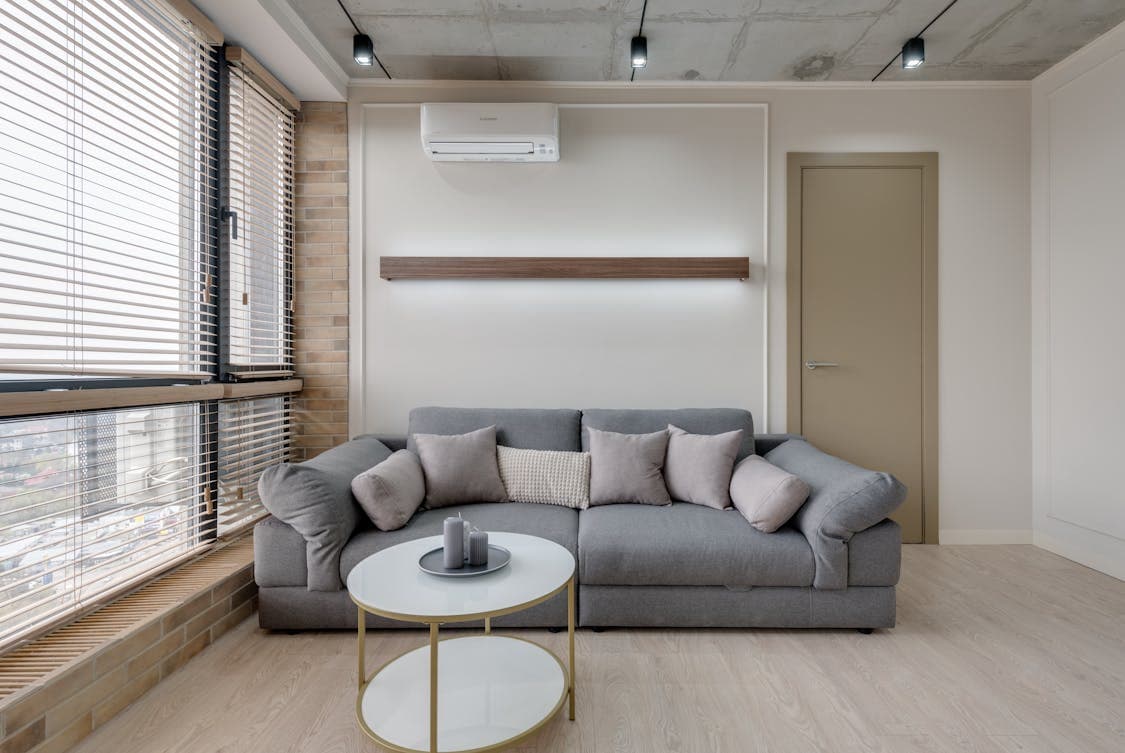Air conditioning systems play a pivotal role in maintaining comfort during hot months. However, encountering water pooling indoors can be alarming and confusing.
Understanding the causes of an AC leak is crucial for addressing the situation effectively. Let’s break down the potential reasons your air conditioning unit may be leaking water inside your home.
Clogged Drain Line
One of the most common culprits behind indoor AC leaks is a clogged drain line. The drain line carries condensation away from the unit, and when it becomes blocked with dirt, dust, or mold, the water has nowhere to go.
As a result, it can back up and leak into your living space. Regular cleaning of the drain line is essential to prevent this issue from occurring.
In some cases, you might notice water pooling close to the indoor unit. If you suspect a clog, flushing the line with a mixture of vinegar and water might help clear it out.
However, if the blockage persists, calling a professional might be necessary to avoid further damage to your system.
Low Refrigerant Levels
Low refrigerant levels can also lead to water leaks from your AC unit. When refrigerant is low, the evaporator coils can freeze.
Once the ice melts, it can create excess water that doesn’t drain properly. This situation can lead to significant water damage over time if not addressed promptly.
If you find that your unit consistently runs low on refrigerant, it may indicate a leak in the system.
A qualified technician should assess the refrigerant levels and repair any leaks to ensure the system operates efficiently.
Faulty Installation
Poor installation can result in various operational issues, including water leaks. If an AC unit is not level or improperly aligned, it can cause water to leak instead of draining away seamlessly.
Installation errors might include misaligned drain pans or incorrect placement of the unit itself.
If you suspect that improper installation is at play, it’s advisable to consult the installation team or hire a professional to evaluate the setup.
An expert can make adjustments to prevent future leaks from occurring.
Dirty Air Filters
Dirty air filters can restrict airflow, resulting in low air circulation. When air cannot circulate properly over the evaporator coil, it can lead to a drop in temperature and subsequent freezing of moisture on the coils.
When the ice melts, it can overwhelm the drain pan, resulting in leaks.
If left unchecked, this buildup can cause water leaks and other performance issues—so it’s smart to repair your cooling system before these problems escalate.
Regularly checking and replacing air filters every one to three months can prevent this issue.
Keeping filters clean allows for efficient airflow and reduces the chances of condensation accumulating inappropriately.
Broken Condensate Pump
In systems where a condensate pump is used, a malfunction can lead to indoor leaks. The pump is responsible for moving water from the drain pan to the drainage system.
If it fails, water can overflow and leak into your home.
Inspecting the pump for signs of wear and tear or malfunction is essential. If you suspect the pump is the issue, it may need to be repaired or replaced to restore proper function.
Damaged Drain Pan
The drain pan is designed to catch excess water from the unit and help direct it to the drain line. Over time, these pans can rust, crack, or become damaged due to wear and tear.
A damaged drain pan can cause water to leak instead of being directed away properly. Regular inspections of the drain pan can help identify issues before they escalate.
If you find damage, replacing the pan is a straightforward solution to prevent leaks.
High Humidity Levels
In areas with high humidity, an AC system may struggle to remove moisture effectively.
When the humidity levels are persistently high, the system may produce more condensation than it can handle, leading to leaks.
Improving ventilation or using a dehumidifier can help manage indoor humidity levels. Keeping the indoor environment dry can assist the AC unit in maintaining proper function and reduce the risk of leaks.
Faulty Thermostat
A malfunctioning thermostat can lead to improper temperature regulation in your home. If the thermostat fails to trigger the unit correctly, it may run longer than necessary.
This extended operation can cause the unit to overwork, leading to excessive condensation and potential leaks.
Checking the thermostat settings and ensuring it’s functioning correctly can help identify this issue.
If problems persist, seeking professional help to repair or replace the thermostat could be beneficial.
Condensation Issues

Sometimes, the problem may not lie solely with the AC unit itself but rather with the environment.
Excessive condensation can occur when there are temperature differences between indoors and outdoors, especially if the indoor air is significantly cooler.
Improving insulation around the AC unit and ensuring that doors and windows are sealed can help mitigate condensation problems.
This management can reduce the chances of water leaking into your home.
Aging Equipment
As air conditioning units age, various components can wear down, leading to leaks. Old units may have rusted parts, degraded seals, or other issues that can lead to increased water production or poor drainage.
If your AC is older and showing signs of wear, it might be time to consider a replacement or a thorough check-up by a qualified technician.
A professional can assess whether repair or replacement is the better option.
Blocked or Leaky Ductwork
Sometimes, the leak may appear to be originating from the AC unit, but it could be from blocked or damaged ductwork. If ducts are obstructed, moisture can accumulate and drip into living spaces.
Similarly, leaky ducts can allow humid air to enter the system, leading to excess condensation.
Regular maintenance of ductwork is essential for both efficiency and preventing leaks. If you suspect duct issues, hiring a professional to inspect and repair them can save you from future headaches.
Environmental Factors
Environmental factors can also contribute to indoor leaks.
Heavy rainfall, flooding, or even high winds can cause external water to infiltrate your home, sometimes creating the illusion that your AC unit is leaking.
Inspecting your home’s exterior for signs of water intrusion can help clarify the source of the leak.
Addressing drainage issues around your property can protect your home from water damage, whether from the AC or environmental factors.
Electrical Issues
Electrical problems can lead to malfunctioning components in your AC unit. If the system isn’t receiving the correct voltage, it may not operate as intended, which can affect water drainage.
Failed components can sometimes cause the unit to malfunction, leading to leaks.
If you suspect electrical issues, it’s best to consult a professional electrician or HVAC technician. They can safely evaluate the electrical setup and make necessary repairs.



